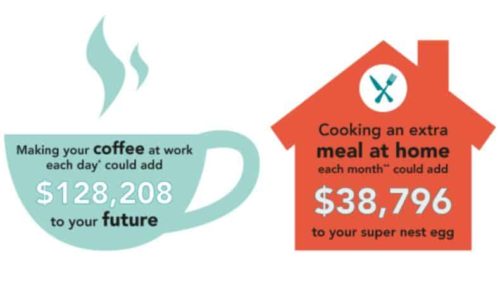Women in Data: People Pioneering Change
March 8th saw over 60 Women in Data advocates join to celebrate International Women’s Day and hear about one of the biggest issues women who work face in our modern world. – The Superannuation Secret.
Pascale Helyar-Moray from Human Super explained that women retire with 58% as much super as men. That means that instead of the 9.5% super contribution your employer pays into your fund, women need to save a whopping 12% to make up this shortfall that their male counterparts don’t typically encounter. The reasons for this?
– The gender pay gap. Before you insist it’s not real, the stats show that it currently sits at 15.3%. That means that technically ladies, on average, we are only paid to work until 3:43pm….
– Women typically take time out to raise the next generation and/or aged parents which means they’re more likely to take career breaks, work part time or contractually. Of course when you’re not working, you’re also not contributing.
– As a collective, women are not good at negotiating pay rises therefore they invite less opportunities to raise their super contributions.
These facts all contribute to the fact the fastest demographic for homelessness in Australia is the older woman. Before you think this couldn’t be you, let’s paint a picture:
Imagine you’re 30, married and having your first baby. You want to stay home to raise the child, so you take time out of work for somewhere between 1 – 18 years, perhaps interspersing part time work and contractual arrangements to fit around the family life you’re building. During this time, you don’t earn a regular income and therefore don’t contribute to your super. Not to mention that every dollar earned feels like it could be put to a more immediate use than saving for a retirement that’s years away.
You raise the next generation over the next 18 years and you are now in your late 40s to early 50s and you and your husband still have at least another 10 years before you can retire. The best-case scenario here is that your husband earns enough to keep the two of you comfortable and of course, that you are comfortable relying on him to provide for you.
In a much bleaker situation, let’s imagine that during these 18 years of child rearing, your relationship with your husband deteriorates and you become one of the one in three marriages to end in divorce. You are now in your late 40s to early 50s and still have at least another 10 years before you can access what little super you had saved and/or any government benefits. You can no longer expect to receive any income from your ex-husband and you have no job, no skills, no savings and no super. How do you expect to live to any basic standard?
Let’s start with how much we need to live on in order to retire comfortably.
$25,000 per year is a very modest suggestion. This is assuming you have no mortgage or rent to pay and you’re relatively frugal in your old age. Let’s say you live until you’re 90 and retire at 67. You’re going to need $575,000 in your super fund to live on. Remember this is a frugal estimate and doesn’t leave room for holidays or a perceived ‘high’ standard of living.
Thankfully, there are some simple things that we can do to assure that we hit this magic number and above in order to avoid being another statistic.
The Rescue Strategy:
– Learn about it.
Did you know that men can make contributions to their spouse’s super funds? No, we didn’t either! Find out who your super is with and then educate yourself on their fees, charges and offerings. Like anything, understanding your super requires a level of engagement but to what level is up to you. Start here:
– Compare, Combine and Check
Once you’ve educated yourself on who your super fund is, go to market and compare the fees and charges with others out there on the market. Are they cheaper? If not, why not? Do you get something else instead?
Combine your super was the most important message Pascale gave us. The statistic is that a woman of 40 has 3 super accounts because she hasn’t consolidated her super when moving jobs. Instead of just letting your employer use their generic fund, combine all your super funds and avoid paying 3 lots of fees and missing out on all that compound interest.
Also check if you’re eligible for a government contribution. Many are, and have no idea but the information is out there.
– Reduce your discretionary spending, and save that money in your super instead.
Perhaps one of the most incredulous things Pascale highlighted was how much saving a tiny, daily amount can amass! A lot of us weren’t aware that we could (and should!) be saving beyond the 9.5% our employers give us into our super funds. What’s more, you can save little and often so it doesn’t have to feel like it’s hitting our purses in the immediate term.
Look at how much you could save and earn by forgoing your morning take away coffee or bringing in an extra packed lunch each month:
– Contribute regularly – the magic of compounding interest
The reason a daily coffee can become such a large chunk of cash is because of compound interest and arguably this is the answer to minimising the gap for women. You can see the difference in savings here – if you made regular deposits adding up to $150k over 30 years, compound interest would increase this to $332,194 over the same period of time.
To put that into context, $5,000 per year is the equivalent of $13 per day. For the price of 2 cups of coffee and a Kit Kat, you could earn yourself an additional $332,000 to live off in retirement. These figures are the difference between you living frugally, and living very comfortably.
Pascale finished by telling us what Human Super are doing to be people pioneering change:
– They’re empowering women through educating and equalising the playing field.
– They’re developing tools like Keep The Change which you can set to round up and save into your super fund. For example, for every $9 you spend, the 10th will go into your super fund.
– They’re also offering monthly Salary Negotiation Workshops like the one showcased at WID on this same evening.
To recap!
Our fundamental problem as a woman is that we look after everyone else first. So fix your own oxygen mask first:
– Find and Combine
– Start contributing – even set up a Direct Debit!
– Every little bit helps – $4 per day adds up to $128k in your retirement nest egg!
– Negotiate your salary. Only 7% currently do this. Change that stat!
– Sign up to Human Super to learn about their contribution tools and how they are part of People Pioneering Change!










